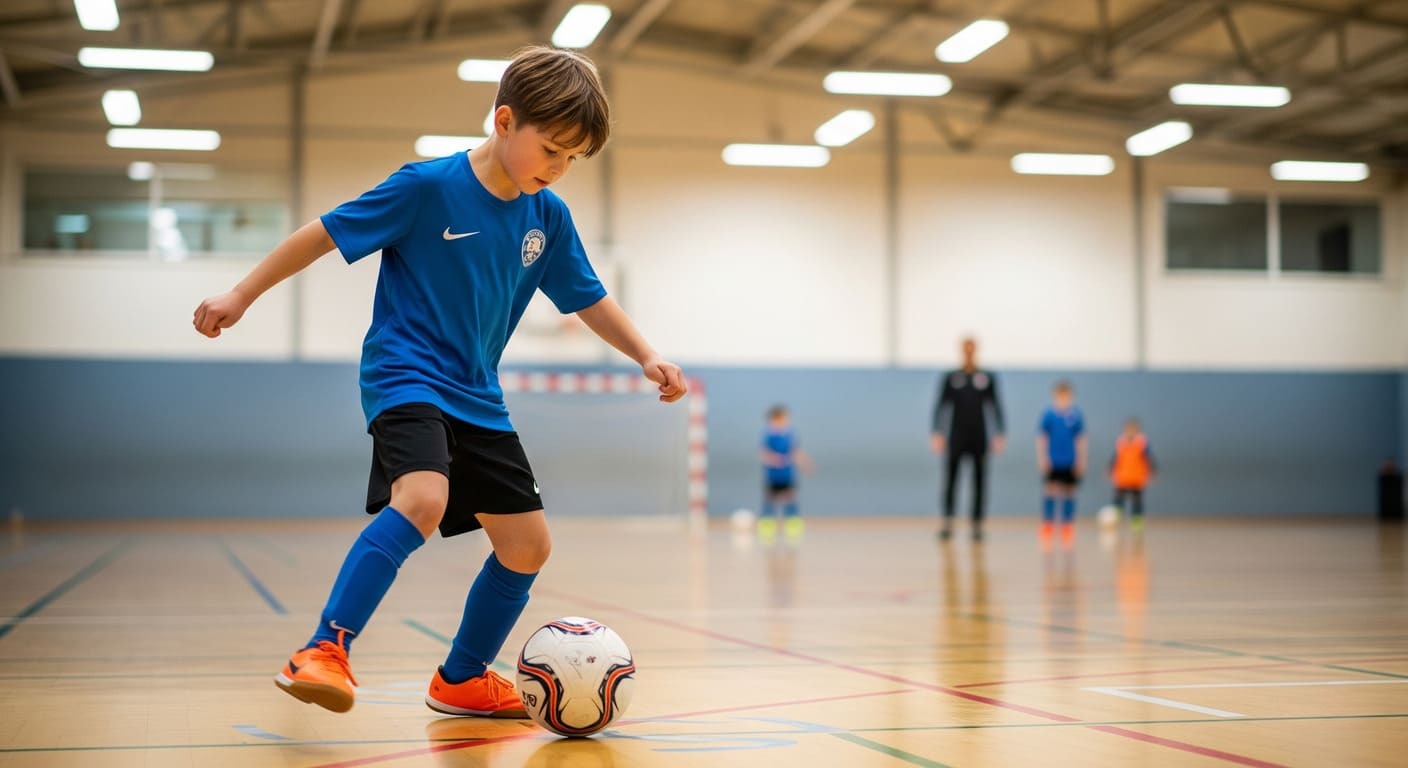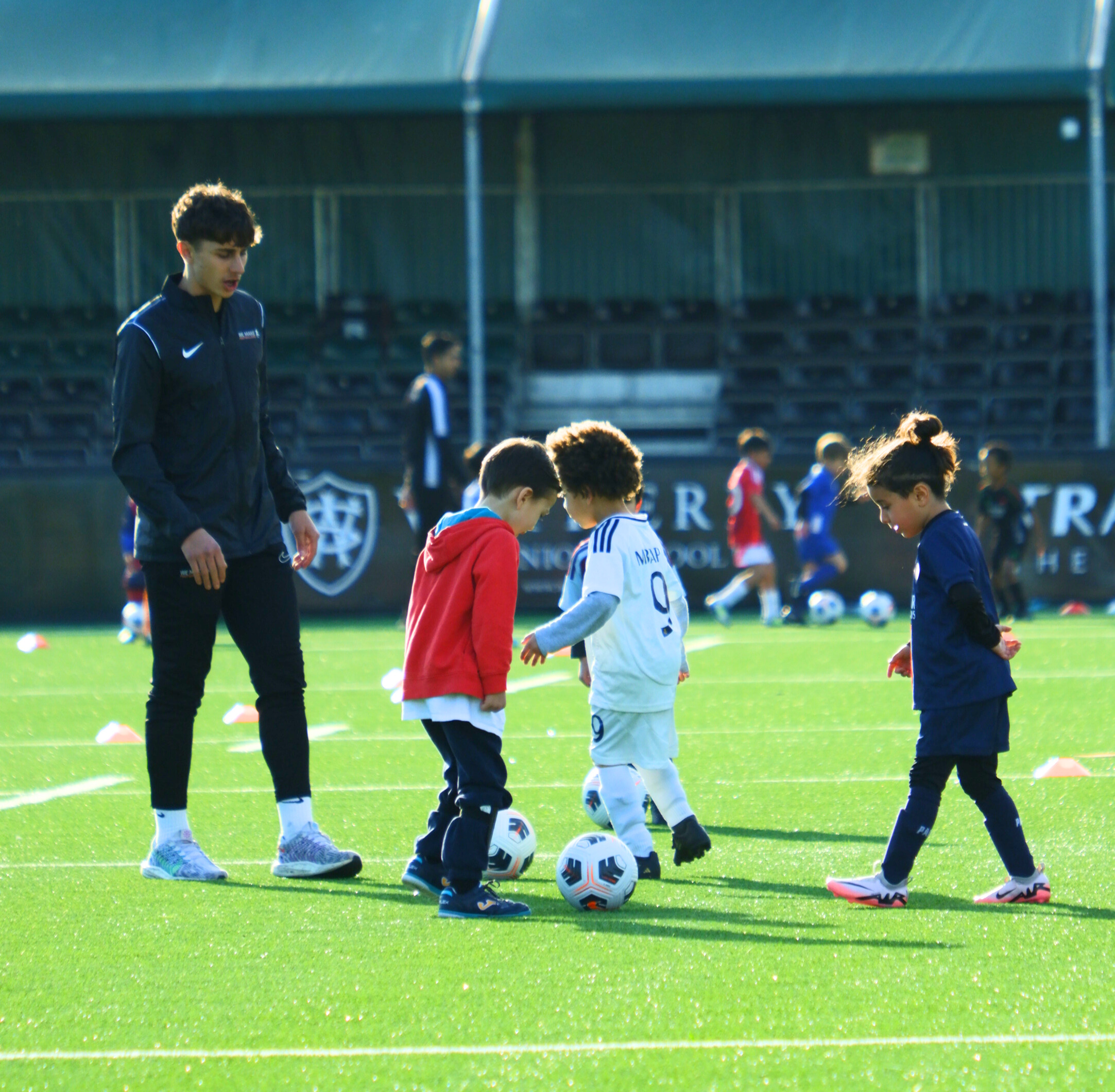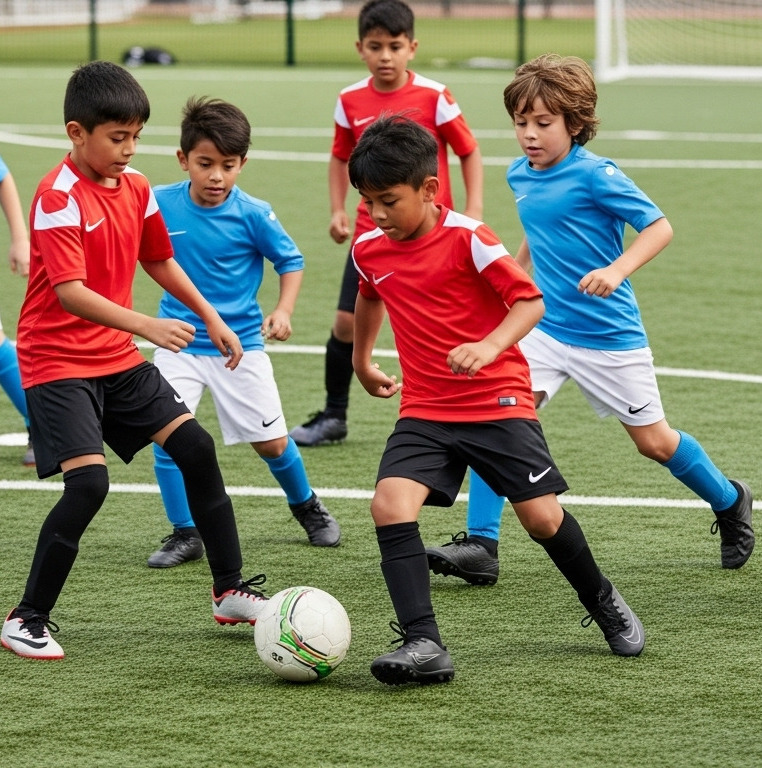What is Futsal? A Complete Guide
Futsal (indoor football) is a team sport played with a ball in a hall, involving two teams of 5 players each, one of whom is the goalkeeper. The maximum number of substitutes is 7, with unlimited substitutions during the game. It is a fast-paced, small-sided football game played indoors on a hard-surfaced court with flat, smooth, and non-abrasive surfaces, preferably made of wood or artificial materials, that comply with the competition regulations. The playground is 40x20 meters, limited only by lines without shields or sides, five times smaller than a football field.
A standard match consists of two halves of 20 minutes each. The duration of each half may be extended to allow for a penalty or a free kick against a team whose players have committed more than five infringements of the rules. The break between the two halves may not exceed 15 minutes. The ball must be spherical and made of leather or other suitable material.
Futsal is a team sport where participants face constantly changing circumstances on the court, which prompt them to make decisions and perform actions aimed at achieving the desired result by their team, within time and space constraints. Players must be quick and agile, have well-developed space and time control skills to accelerate and quickly change direction in the limited space. Players must be able to control the ball and perform other technical actions at the right time and moment. Since the opponent is almost always at a short distance, decisions should be quick and as unexpected as possible for the opponent. Because of the above, actions and combinations brought to automatism are crucial to team efficiency.
History and Evolution of Futsal
Futsal - (from the Portuguese futebol de salão and Spanish fútbol sala - “indoor football”). Futsal was founded in Montevideo, Uruguay, in 1930. Juan Carlos Seriani is considered to be its father. The sport was born out of Juan Carlos's desire to give children who did not have access to football fields the opportunity to “play” with the ball on basketball courts. Seriani, using and adapting the rules of other indoor sports, such as basketball, handball, and water polo, defined the format of the game, the size of the court, the number of participants, the duration of the match, and the rules for goalkeepers. The new sport instantly became popular in Uruguay and then spread throughout South America. For the first time on the Eurasian continent, Austrians started playing modern mini-football in 1958. For a long time, futsal was used as a tool in the training process of football, but gradually it became a separate game with its own rules and methods of training players.
The first official FIFA Futsal World Championship occurred in 1989 in the Netherlands, with Brazil emerging as champions. The tournament, held every four years, has been dominated by Brazil (6 titles) and Spain (2 titles).

Key Differences Between Futsal and Football
From a technical point of view, the futsal game has adapted the characteristics of several types of sports in which the upper body takes an active part in controlling the ball during the game as a whole. Nevertheless, its basis is football, where the lower part of the body is used to perform the main technical element - control over the ball. However, futsal has a number of significant differences from football:
• Futsal is played on a 40x20 meter court, which is five times smaller than a football field;
• The surface of the court must be smooth;
• The ball is smaller and less bouncy than in football;
• Each team consists of five players;
• There is no offside rule;
• The number of substitutions is unlimited and can be made while the ball is in play. The substituted player may re-enter the court;
• All fouls are added up, which results in more severe consequences compared to soccer (starting from the sixth team foul, opponents take free kicks without a wall);
• In a football match, the clock keeps going, and in futsal, real game time is recorded by a chronometer, and it stops if the ball is not in play;
• If the ball goes out of bounds in football, it is thrown into play with the hands, and in futsal, the ball is kicked;
• A goalkeeper can only throw the ball, and must release it within 4 seconds;
• Handball goals are used 2x3 meters;
• Teams can take a timeout.
These differences make futsal a more compact, technical game, while football focuses on broader strategy and endurance. There are some other specifics regarding rule violations (fouls and unsportsmanlike behavior), but in general, futsal is an adaptation of big football to play on a smaller court.
Benefits of Playing Futsal
So why is futsal a smart bet? This sport requires a lot of physical activity and constant participant involvement, making it an excellent means of developing children`s physical abilities. Research indicates that futsal players make six times more touches on the ball than when playing big football, allowing players to perform more individual techniques such as passes, controls, dribbles, fakes, and feints with the ball. The smaller court and the many more touches on the ball induce the player to be creative, think outside the box, and try things that they would never risk doing on the big football field.
Futsal players are constantly involved in the game either directly or indirectly. That is, they get more time to improve their abilities and skills directly, so futsal is also considered an excellent training tool for football. Facilities offering futsal market it as a fun, dynamic alternative to traditional gym routines, capturing a growing market of health-focused individuals. Players like Neymar and Messi credit futsal for their flair, making it a breeding ground for talent. Cristiano Ronaldo, Iniesta, and Xavi have thanked futsal for helping to hone their considerable skills. Academies and brands leverage this to attract aspiring athletes, offering premium coaching programs and sponsorships that elevate brand visibility while nurturing future stars.
Unlike outdoor sports, futsal’s indoor nature ensures consistent play regardless of season or weather conditions. All you need is a ball and shoes. Futsal’s accessibility makes it ideal for urban areas and diverse demographics. Futsal’s safe, controlled environment fosters teamwork and discipline for kids. Businesses gladly sponsor teams or events, building brand loyalty among passionate, local fan bases.
Futsal Competitions and Leagues
Futsal has various competitions and leagues organized globally at international, continental, national, and regional levels.
International Competitions:
• FIFA Futsal World Cup: Held every four years, it’s the premier global tournament. The 2024 edition took place in Uzbekistan with 24 nations competing;
• IFA World Championships: Organized by IFA, including men’s (2019) and women’s (2017) events, providing additional global platforms;
• CONMEBOL Libertadores Futsal: South America’s top club competition, recently won by Peñarol (Uruguay) in 2025, breaking Brazil’s dominance;
• Futsal Finalissima: A UEFA-CONMEBOL men’s event pitting top European and South American teams, first contested in 2022;
Continental Competitions UEFA (Europe):
• UEFA Futsal Champions League: This elite club competition expanded to 56 clubs from 52 nations in 2021/22. The 2022 final in Riga drew a record 8,442 fans.
• UEFA Futsal EURO: Men’s and women’s national team tournaments. The 2022 men’s event had 19.8 million viewers; the women’s championship, launched in 2018, grew from 7 to 24 teams by 2022.
• Under-19 Futsal EURO: Youth competition boosting grassroots growth.
National Leagues and Competitions:
• FA National Futsal Series: This top-tier league has been in existence since 2019/20, replacing the FA National Futsal Super League. The National Futsal League now forms the third tier, split into four regions.
Regional and Community Leagues:
Futsal leagues in the UK are often organized regionally or at a grassroots level, with many catering to local communities, youth, and universities:
• Pendle Futsal League: Formed in 1990 in Lancashire, England’s first futsal league remains a key community league in England.
• Grimsby Futsal League: Established in the early 2000s, it hosts local tournaments and contributes to grassroots futsal.
• UK Futsal Leagues (Essex): Launched in September 2024, this community-focused league in Essex aims to provide inclusive opportunities for young players, avoiding conflicts with grassroots football. It’s affiliated with the FA and operates at various venues across the country
• Futsal Girls Super League (London): Based at Queenswood School in Hatfield, it was launched in 2021 in London and provides competitive futsal for girls aged U9 to U16. As of 2024, it had 79 teams. It operates over four match days, with eight teams per age division, emphasizing technical skill development.
• London Futsal League: Operating in areas like Clapham Common and North Finchley, focusing on community engagement.
• University and Grassroots Tournaments: Local tournaments such as the York University PWC Open and the North East Futsal Open are common, drawing university and independent teams. English teams also participate in international university tournaments like the Totelos Tournament.
• BUCS Futsal: The British Universities and Colleges Sport (BUCS) organizes futsal competitions for university students, including the Futsal Championship and Trophy for the 2024/25 season, with fixtures managed via BUCS Play.
• National Youth Futsal Competition: For the 2025/26 season, England Futsal is aligning this competition with regional leagues to enhance opportunities for clubs, coaches, and players.
Getting Started with Futsal
Futsal is one of the fastest-developing sports in the world. Football academies play an essential role in introducing futsal to children. They not only assist in developing healthy life habits but also in developing children as players. We Make a Footballers is aiming to develop and enhance children`s futsal experience by providing parents and children of varying abilities between the ages of 4 and 12 years old with the expertise and tools to get started.
We provide football training across many locations, days, and times so that you may choose what is most convenient for you. Our football coaches will ensure that your children are kept busy with our professional football training. When training indoors, we may train with Futsal balls to improve technical performance of players.
Interested to learn more? Find a We Make Footballers location near you to improve your game through futsal and small sided, high football touch style training.



